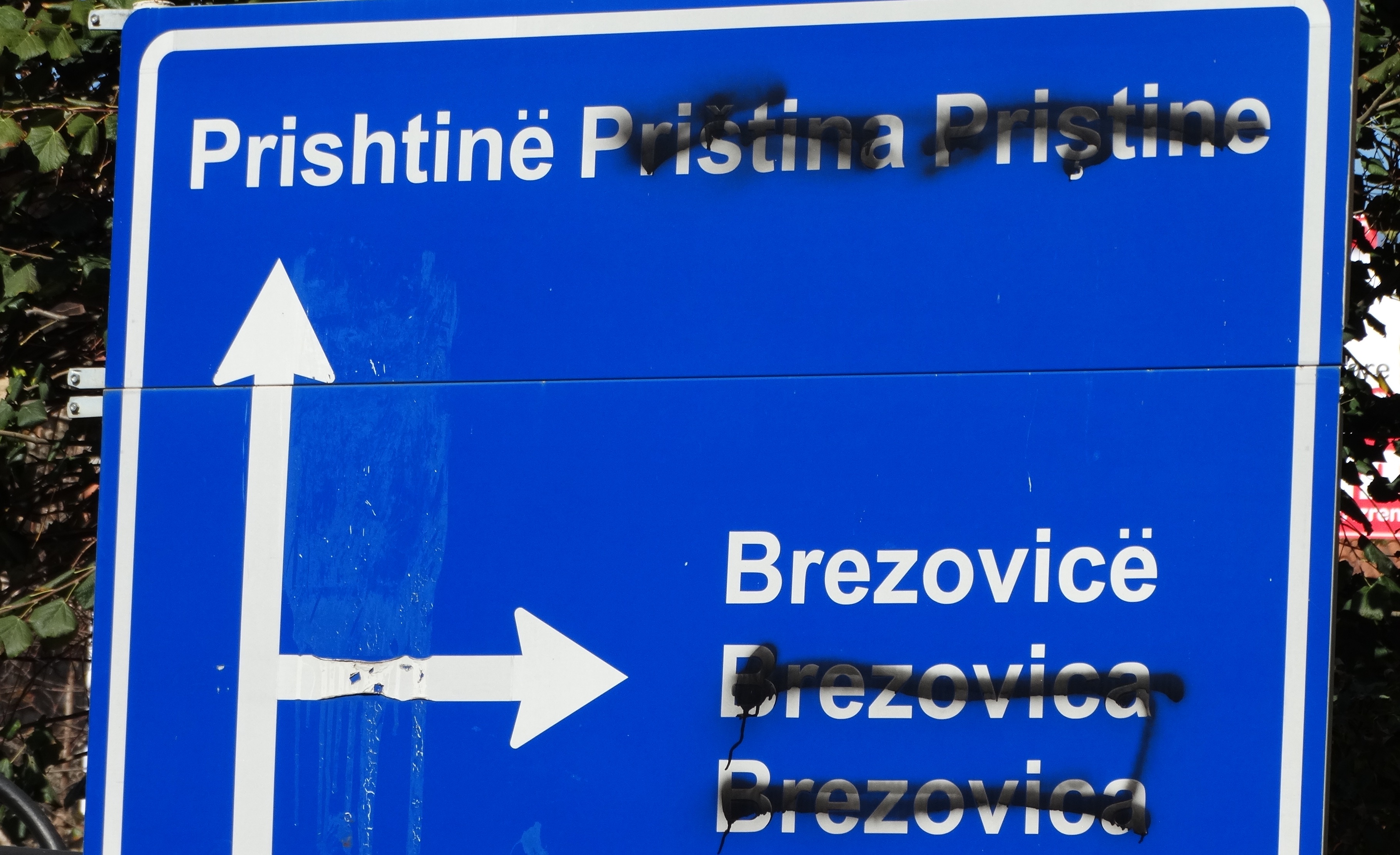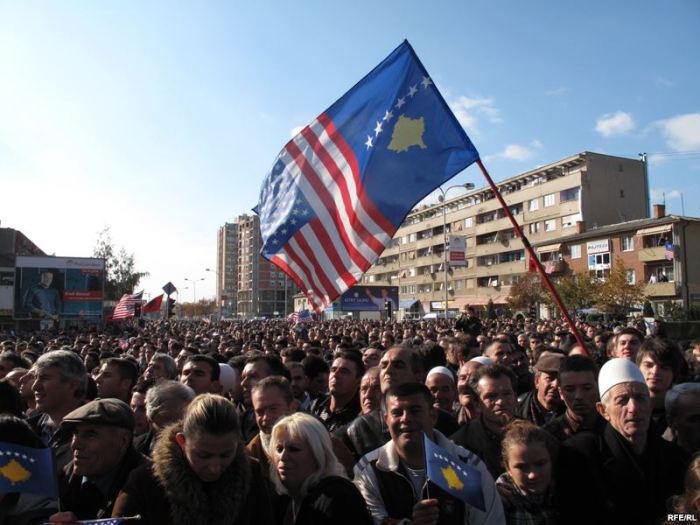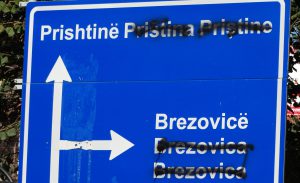
Views: 176
Kosovo (in fact, Kosovo-Metochia), a disputed territory claimed by Serbia and Kosovo Albanian separatists, which Serbs regard as central to their cultural identity (differently to the Albanians), is going to pose much more unexpected problems for the international community concerning its political status as it became obvious that Belgrade and Prishtina cannot found common language during 22 years of negotiating process. The European Union already in 2007 formally warned the former leader of the Kosovo Liberation Army–Hashim Tachi, a winner of the 2007 November parliamentary and local elections to freeze the proclamation of independence as the final solving solution for Kosovo knot mainly due to the Russian strong support of Serbia’s viewpoint that Kosovo is an integral part of her state territory and cannot be internationally recognized as an independent state.
However, with direct support from the US administration, on February 17th, 2008, Kosovo Assembly unilaterally (without a public referendum) declared Kosovo independence as the final political solution to the problem called the Kosovo knot. From that time onward, the Western part of the international community (NATO and the EU) is just expecting that Serbia would confirm such a solution in order to close the Kosovo chapter forever.
Nevertheless, there are three possible political solutions to solve the Kosovo knot followed by the real situation on the ground.
The first solution: State independence
The creation of an independent Kosovo is an option that is not rejected by the Western part of the international community as thoroughly unacceptable but there should be respected the principle that the borders could be changed only by peaceful means and with the agreement of the parties concerned.
However, taking into consideration public opinion as well as the opinion of the most important political factors in Serbia, who decisively reject such a possibility, the realization of this option as the final solution for the Kosovo knot could be possible to be achieved only by a new military conflict what none of the parties, in fact, wants.
Considering this reality, those Albanians who advocated before February 2008 the strategy “step by step” (from the 1990s) supported the modality of achieving the status of the republic or confederate unit under international protection within Serbia, what would in the future open the possibility for a less painful secession, i.e., independence. Nevertheless, the (Western) idea of Kosovo independence already created a boomerang effect like in East Ukraine or South Caucasus.
The second solution: Provincial autonomy
In the case of Kosovo having the administrative status of the highest political and national autonomy (that is a final Serbia’s offer – the “Hong Kong” or “Scandinavian” model), however, could create a precedent that would encourage minority communities in other states which make a compact majority in some territory (Kurds, Catalans, Corsicans, etc.) to follow the same way. Nonetheless, a such political solution would turn the ethnic issue into a global issue of security in many multiethnic countries around the globe.
The danger of the creation of independent Kosovo does not only lie in the fact that the official Belgrade is opposing this idea (likewise, for instance, the Greek Cypriot Government that is opposing the creation of an independent Turkish North Cyprus), but also in the danger that the newly-created state would strive to get united with the neighboring areas populated by ethnic Albanians like South-East Serbia (Medvedja, Bujanovac, and Preshevo municipalities), West North Macedonia, or East Montenegro).
This would, by itself, as it is already, endanger the security and stability in the region (for instance, the Albanian rebellion in North Macedonia in 2001 that was directly supported by the veterans of the Albanian Kosovo Liberation Army for the matter of pan-Albanian political unification).
The third solution: Political re-unification with quasi-“the motherland”
The core of the problem starts when the Socialist Federal Republic of Yugoslavia (the SFRY) broke up but no agreement was achieved in changing the borders. One-sided separation of some federal units–republics was allowed to occur by Western “democracies” and that was the principle that was respected from the beginning till the end of the Yugoslav crisis (from 1990 to 1999).
Since Kosovo enjoyed in the SFRY the status of territorial-national autonomy within Serbia (likewise the region of Vojvodina), the demands for independence have not been supported by the international community. However, encouraged by Slovenian, Croatian, Macedonian, and Bosnian independence (internationally recognized firstly by Western countries followed by the rest of the world) the greatest hard-liners within the Albanian national movement – followers of Redzep Cosja, member of the Kosovo Academy of Arts and Science, championed Kosovo independence with a final task of joining Kosovo to Albania (the wish publicly confirmed in 1997 by Kosovo Albanian leader – Dr. Ibrahim Rugova). Actually, according to the idea and the things, this line pleads for in politics, the mother state of Albania would gather together all “Albanian lands” or the territories populated by the Albanian inhabitants who are there in majority.
However, it has to be clearly noticed that Albania was never the real motherland of Kosovo different from the case of Serbia. Kosovo was never part of Albania except during WWII when B. Mussolini created a Greater Albania together with the biggest portion of multiethnic Kosovo but, nevertheless, without its northern part which is even today exclusively populated by the Serbs. In other words, all of those Albanians advocating the creation of a Greater Albania including Kosovo too are, in fact, supporting the idea of re-creation of the Second World War’s Mussolini’s Greater Albania.
What is reality?
However, after the turmoil in Albania in 1997 caused by the collapse of “the pyramidal system of private banks” in which the Albanian Government was involved too, and when Albania was at the edge of the civil war and threatened by the danger of institutional disintegration, the idea of Kosovo unification with Albania has been pushed aside by many politicians and citizens on both sides of the border as the Albanians in Albania faced up with the struggle for survival and civil war of tribal and regional character. Political and economic circumstances have pushed temporarily Kosovo from Albanian nationalists’ primary political vision at least up to the mid-1999. On other hand, the Albanians in Kosovo have become less enthusiastic to join their poor and divided brothers for the sake of great romantic ideas.
Nevertheless, today, as a matter of fact, there is no strict border between Albania and Kosovo and, therefore, the traffic of people, goods, arms, etc. between these two Albanian national states is free like within the Schengen Zone in Europe. Kosovo is already since mid-June 1999 occupied by NATO forces (redressed into KFOR uniforms) while, in fact, the focal boss of the province is Washington. In conclusion, Kosovo is de facto separated from Serbia, de iure, quasi-independent state but in reality, an American colony.
Ex University Professor
Research Fellow at Centre for Geostrategic Studies
Belgrade, Serbia
www.geostrategy.rs
vsotirovic@yahoo.com
© Vladislav B. Sotirović 2022
Personal disclaimer: The author writes for this publication in a private capacity which is unrepresentative of anyone or any organization except for his own personal views. Nothing written by the author should ever be conflated with the editorial views or official positions of any other media outlet or institution.
Originally published on 2022-11-01
Origins of images: Facebook, Twitter, Wikimedia, Wikipedia, Flickr, Google, Imageinjection, Public Domain & Pinterest.
Read our Disclaimer/Legal Statement!
Donate to Support Us
We would like to ask you to consider a small donation to help our team keep working. We accept no advertising and rely only on you, our readers, to keep us digging the truth on history, global politics, and international relations.
FOLLOW US ON OUR SOCIAL PLATFORMS











